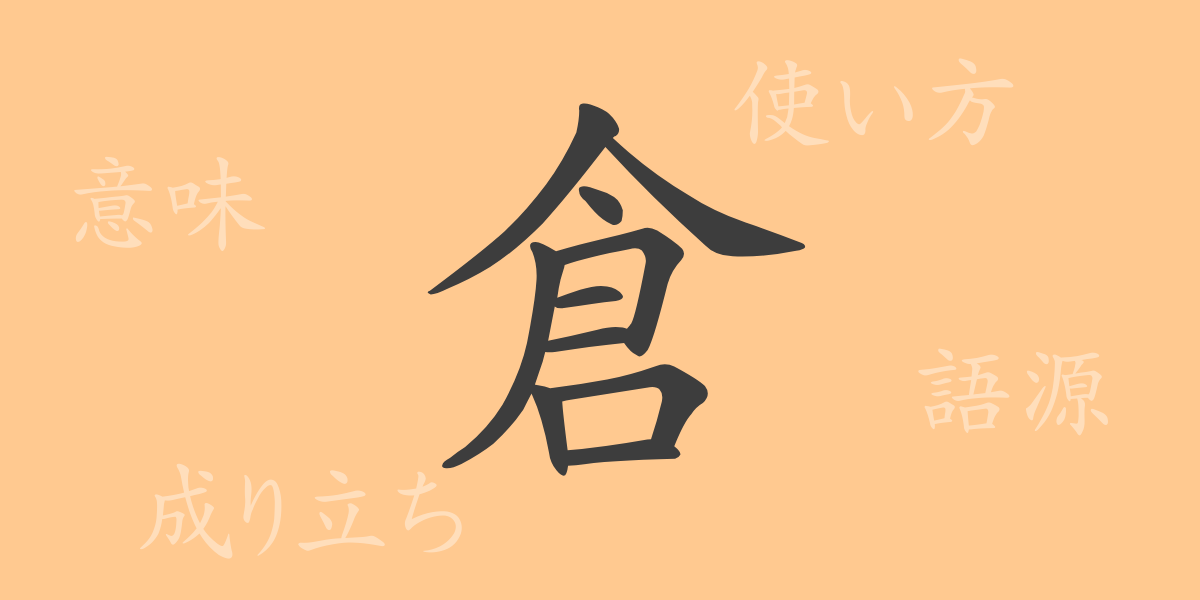The beauty of the Japanese language lies in its rich expressions, symbolized by Kanji characters, known for their complexity and aesthetic. One such Kanji, “倉” (くら – ソウ), is deeply embedded in our lives, yet it carries a rich history and meanings behind its simple facade. This article explores the origins, meanings, usages, and the broader linguistic implications of the Kanji “倉” (くら – ソウ).
Origins of 倉 (くら – ソウ)
The Kanji “倉” (くら – ソウ) is derived from ancient Chinese pictographs, initially representing a facility for storing grains, symbolized by its depiction of a roof and supports. Over time, this character evolved into the modern “倉” (くら – ソウ), embodying the significance of storage places in human civilization, reflecting its integral role in human livelihood from ancient times.
Meaning and Usage of 倉 (くら – ソウ)
The primary meaning of “倉” (くら – ソウ) is a building or facility for storing goods or grains. However, it also extends to “倉庫” (そうこ), commonly referring to any storage facility. In economic contexts, it might also denote the accumulation of resources or wealth. Common usages include phrases like “building a storehouse,” “filling the warehouse,” or “putting into storage.”
Readings, Stroke Count, and Radical of 倉 (くら – ソウ)
“倉” (くら – ソウ) offers insights into its pronunciation and structure:
- Readings: On’yomi “ソウ” (ソウ), Kun’yomi “くら” (くら)
- Stroke Count: A total of 10 strokes
- Radical: 人偏 (ひとかた – human radical)
Idioms, Phrases, and Proverbs Using 倉 (くら – ソウ) and Their Meanings
Various idioms and phrases incorporate “倉” (くら – ソウ), each enriching the Japanese language in unique ways:
- 倉皇 (そうこう) – A state of being flustered or in a hurry.
- 倉庫 (そうこ) – A facility or building used for storage.
- 米倉 (べいそう) – A region known for its abundant grain production.
- 倉を空ける (くらをあける) – To deplete one’s stored supplies.
- 倉荒らし – Wastefully using up stored goods or stealing from a storage.
These expressions range from everyday usage to specific contexts, illustrating the versatile application of “倉” (くら – ソウ).
Summary on 倉 (くら – ソウ)
The Kanji “倉” (くら – ソウ) plays a crucial role in expressing essential concepts in our lives while also serving as a pivotal element in the Japanese language. Despite its evolution from ancient to modern times, its fundamental value as a symbol of storage and preservation remains unchanged. The significance of “倉” (くら – ソウ) in conveying the importance of storage in our culture and history continues to make it a noteworthy character to explore further.

























